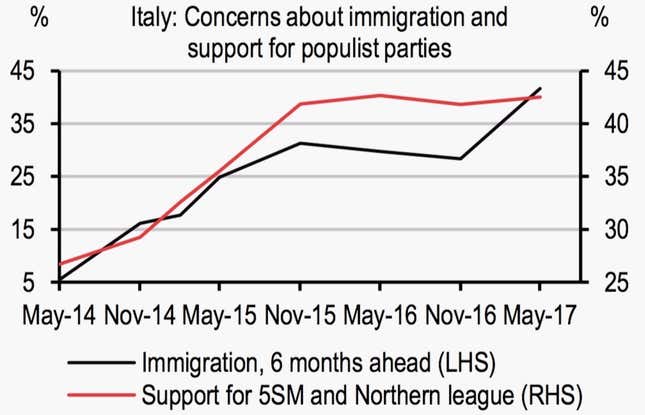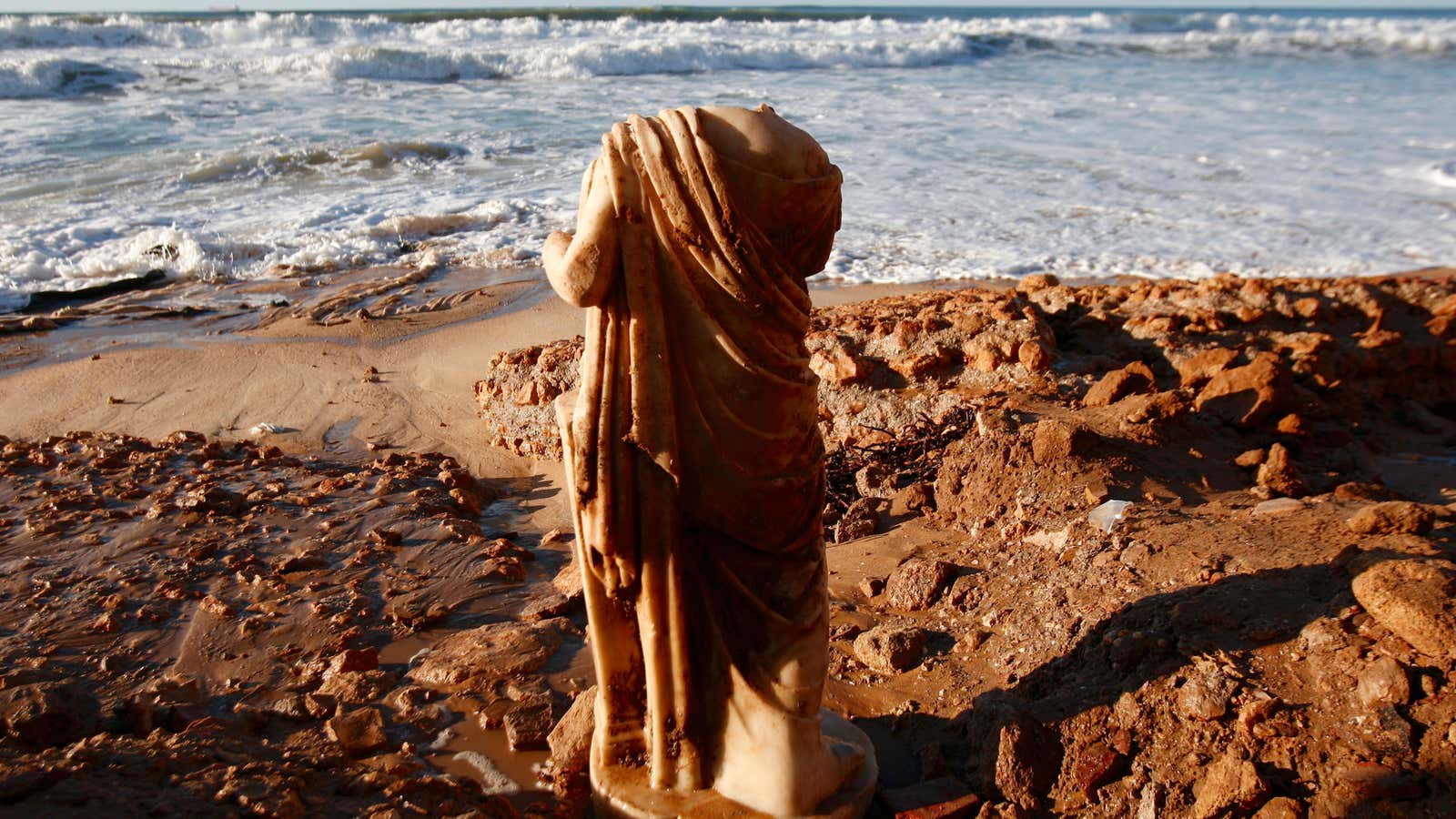The number of migrants traveling to Europe has fallen since the peak of the continent’s refugee crisis in 2015, when 1 million people crossed the Mediterranean seeking safety from war-torn countries or simply looking for a better life. Although the influx has subsided overall, it remains acute in a country that’s already struggling economically: Italy.
Since Turkey and the EU agreed a deal to curb the flow of migrants to Greece—the most popular route—Italy is “bearing the brunt” of the ongoing migrant crisis, according to a research note by analysts at HSBC. In the year to July, 80% of the migrants coming to the EU first arrived in Italy.
“With Italy now bearing the brunt, the Italian [prime minister] has called for other EU states to help. But intra-EU cohesion has been lacking,” say HSBC’s analysts. “Financial support to countries with external borders has been low. And, so far, only 25,000 of the 160,000 refugees that were due to be distributed across the EU have actually moved, meaning most remain in their country of arrival.”
Many of the more than a million migrants that have settled in Germany over the past few years were Syrians, Afghans, and Iraqis fleeing war. By contrast, “the vast majority of recent arrivals into Italy come from Africa, where the distinction between refugees and economic migrants is not clear-cut,” the analysts note.
This is an important distinction. After Emmanuel Macron defeated rightwing populist Marine Le Pen in May elections to become the president of France, and the party of far-right politician Geert Wilders underperformed in Dutch parliamentary elections, some assumed populism’s momentum in Europe, fueled by anti-immigration sentiment, was waning. This is “premature,” says HSBC.
Anxiety about immigration “could play into the hands” of populist, anti-EU parties as Italy gears up for a general election due in May (but may be called earlier).
Italy is the euro zone’s third-largest economy, with public debt of some €2.3 trillion ($2.7 trillion). The populist 5 Star Movement, which has topped several pre-election opinion polls this year, once called for a referendum on Italy’s euro membership if it won power, although it has backed off from this in recent months. The more vehemently anti-immigration, anti-euro Northern League—which is polling at nearly 15%—is clearer about wanting Italy to scrap the euro and quit the EU.

If Italy left the euro, its new currency would swiftly depreciate, boosting its already enormous euro-denominated debt load. The country’s extensive financial connections with the rest of the euro zone mean that the turmoil would spread far. Oxford Economics says that if Italy left the euro, it could cut 0.4% from global GDP.
That’s what could be at stake as eurosceptic populists bolster their support in response to Italy’s migrant crisis. Reflecting the popular mood, the governing center-left party has itself begun speaking in harsher terms about immigration. It dispatched navy ships to Libyan waters this week to help local forces deter boats from launching. A new rule also require rescue craft run by NGOs in the Mediterranean to carry police on them, to ensure that they are not abetting people smugglers. A German group that didn’t comply had its boat seized recently by the Italian coast guard.
